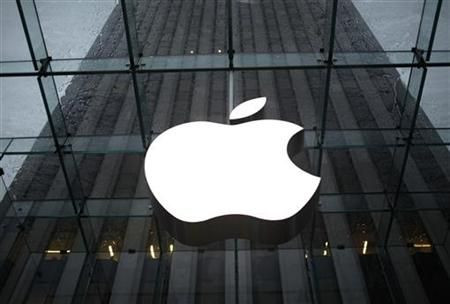Apple's Capex Guidance of $8 Billion Could Mean Something for iCloud, Revenue: Analyst

Barclays Capital said Apple Inc.'s capital expenditure (capex) projection is really the only major figure it forecasts for investors on an annual basis in every 10Q and 10K filings. The brokerage said capex guidance of $8 billion could mean something for iCloud and revenue.
Apple issued its fiscal 2011 10K filing on Oct. 26, which highlighted a few points of interest. First and foremost, we were surprised to see guidance for capex of $8 billion, up from $4.6 billion or $4.3 billion in cash capex, said Ben Reitzes, an analyst at Barclays Capital.
Reitzes said this growth of 73 percent year-over-year versus the $4.6 billion figure and 88 percent increase versus the cash figure is surprising, and well above our existing estimate of $6.8 billion.
Apple stated the projected figure includes $900 million for retail store facilities (including 40 new stores), up 47 percent from $614 million. The figure also includes $7.1 billion for product tooling and manufacturing process equipment, and corporate facilities and infrastructure, including information systems hardware, software and enhancements.
We believe the growth in capex also may show how important the growth of iCloud may be -- and the investments needed to sustain and grow it. Right now, we believe Apple gets some help for partners in delivering iCloud and iTunes Match -- but we believe the company would like to do it all itself, said Reitzes.
Reitzes envisions iCloud's capabilities further expanding with Apple's, and potential moves into entertainment. He believes the backup capabilities will expand as well -- and create more services revenue streams.
In his opinion, iCloud is one of Apple's most important services since the launch of the iTunes store in 2003, given its role as a convenience factor for customers -- fostering loyalty within the Apple ecosystem and driving the halo effect that helps sell more devices.
Reitzes said that over the years, Apple's capex growth year-over-year had tracked closely with the company's actual revenue growth for that same year -- but started to diverge a bit in fiscal 2011.
He expects some further divergence in fiscal 2012, but the projection still illustrates some Apple optimism on prospects over the long term.
While Reitzes' estimate for Apple's fiscal 2012 revenue is $142 billion (up 31 percent year-over-year; consensus at $139 billion), Apple's guidance for capex of $8 billion reflects cash capex growth of about 88 percent year-over-year, which is far ahead of the Street's estimate for 28 percent revenue growth in fiscal 2012.
Reitzes noted that Apple held cash capex to about 3 percent of revenue from 2006-2010 and that figure jumped to 4 percent in fiscal 2011. If Apple were to raise its capex-to-revenue ratio to 5 percent in fiscal 2012, based on its capex guidance it would still imply a fiscal 2012 revenue figure of close to $160 billion, which is well above consensus of $139 billion.
Our checks also indicate Apple continues to gain share in Macs into year-end, benefiting from OS X Lion and new products. Given Apple's ability to sell NAND-based iPads and Macbook Airs, the company may be the least impacted computer company in our sector by rising prices and shortages for HDD's, said Reitzes.
Apple stock closed Wednesday's regular trading up 0.23 percent at $397.41 on the NASDAQ Stock Market.
© Copyright IBTimes 2025. All rights reserved.





















